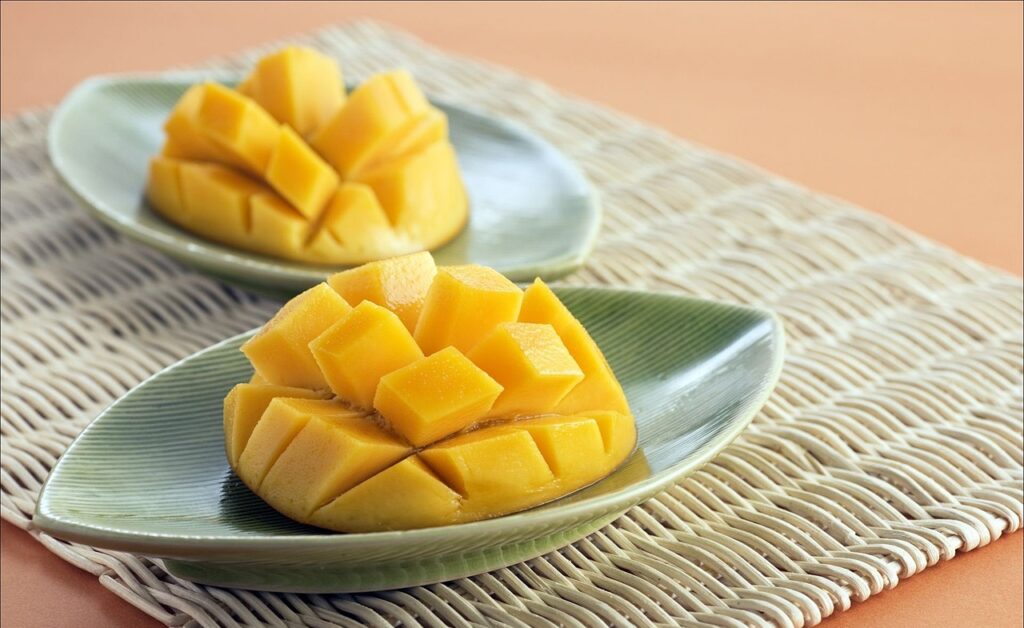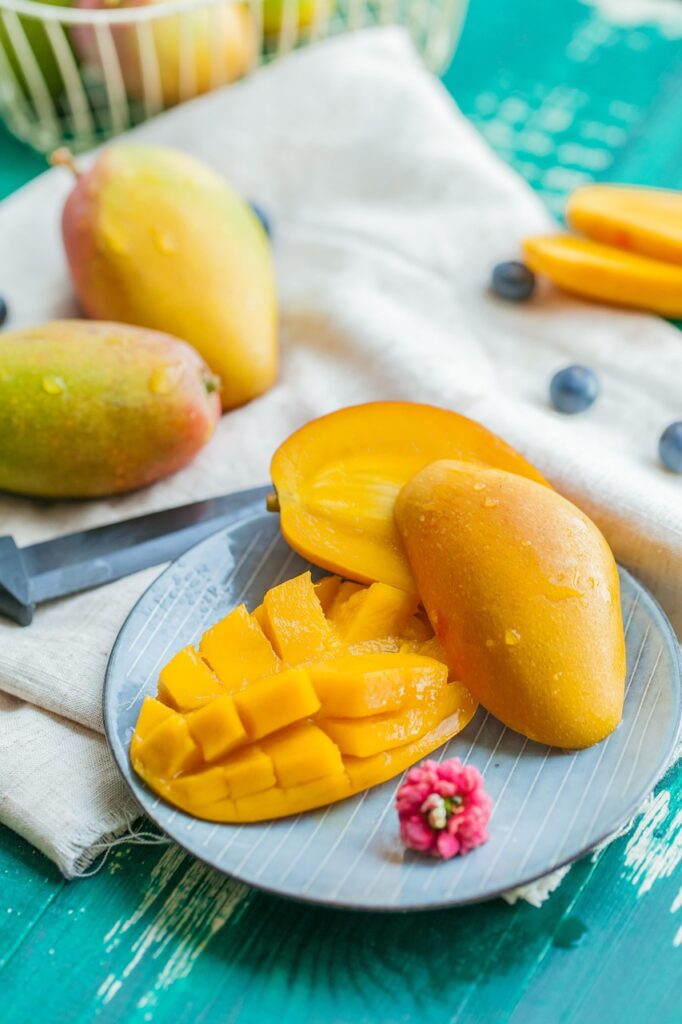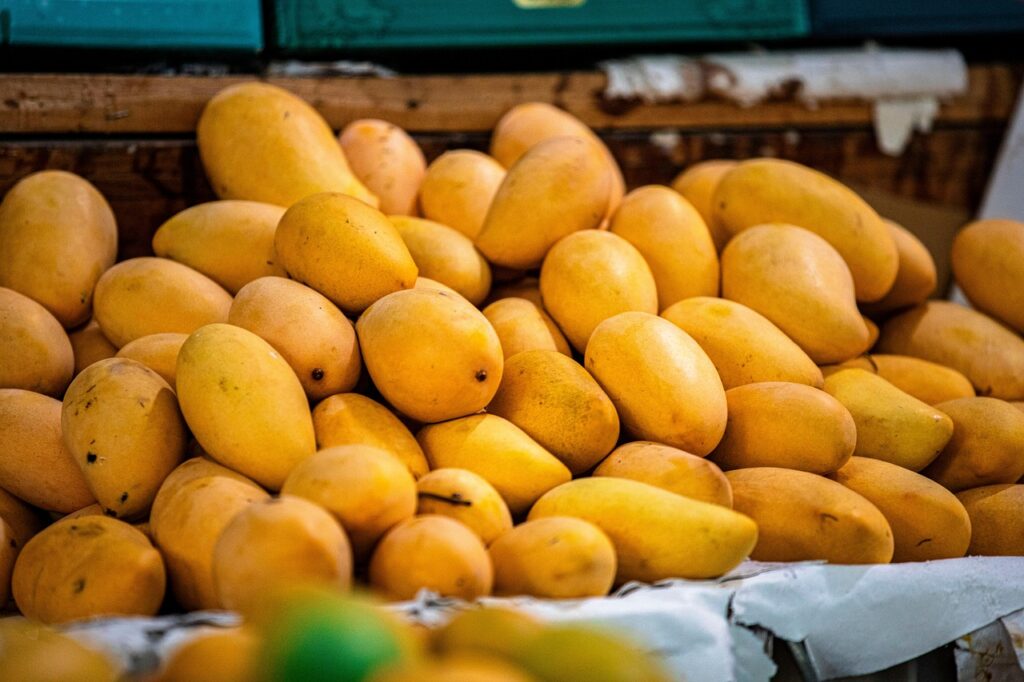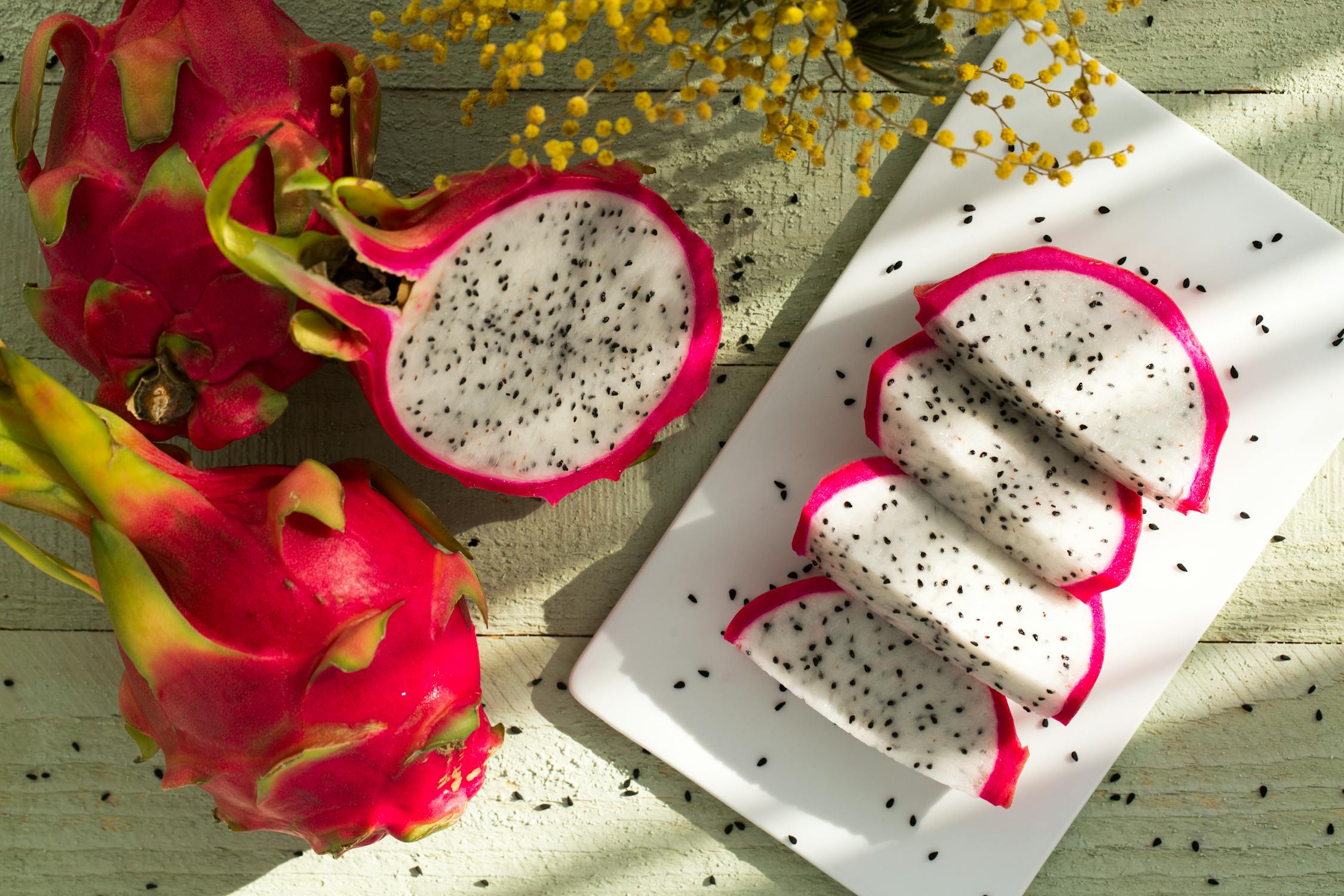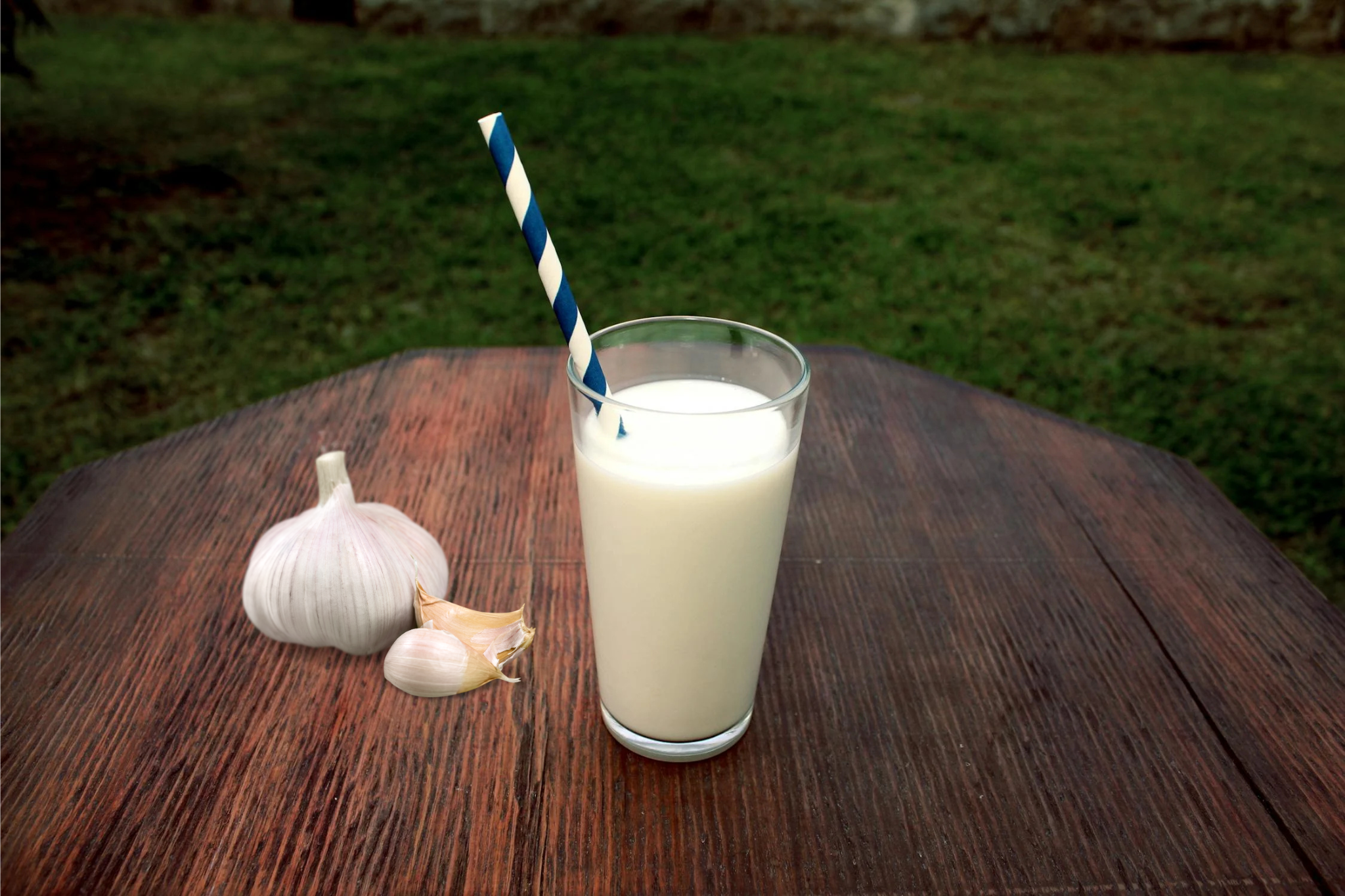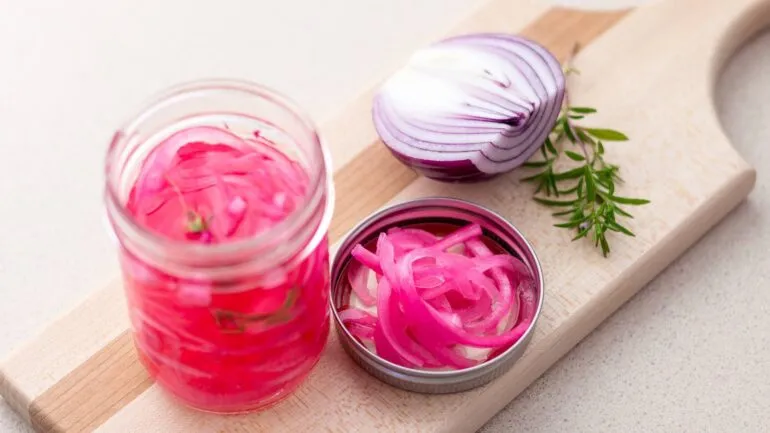As a nutritionist, my inbox overflows with mango questions every summer.
“Can I eat mangoes on a diet?” “Do they cause diarrhea?” “Are they safe during pregnancy?”
With mango season in full swing, it’s no surprise everyone’s obsessed with this juicy, sweet fruit.
Known as the “king of fruits,” mangoes are not only delicious but also packed with health benefits.
But myths and confusion, like whether they’re too sugary or bad with milk, make people hesitate.
In this detailed, easy-to-read guide, I answer all your burning mango questions below to help you enjoy mangoes guilt-free!
What Makes Mangoes So Nutritious?
Mangoes are a nutritional powerhouse, loaded with vitamins, minerals, and antioxidants that keep your body happy.
A 100-gram serving (about half a medium mango) has roughly 60 calories, making it a tasty yet healthy choice.
Let’s break down what’s inside:
- Vitamin C: Boosts your immune system, heals wounds, and keeps skin glowing. One medium mango (about 200 grams) gives you almost 100% of your daily vitamin C needs.
- Vitamin A: Great for your eyes, skin, and hair. It helps you see better and keeps your skin smooth.
- Fiber: About 2–3 grams per 100 grams. Fiber helps you poop regularly, keeps your tummy full, and supports a healthy gut.
- Antioxidants: Mangoes have compounds like mangiferin and quercetin that fight harmful particles called free radicals, protecting you from diseases like cancer or heart problems.
- Potassium: Helps control blood pressure and keeps your heart strong.
- B Vitamins: Give you energy and keep your brain sharp.
- Low in Fat: Mangoes have almost no fat, so they’re perfect for a balanced diet.
With all these nutrients, mangoes are a fantastic addition to your meals. But let’s tackle the questions you keep asking me!
Can You Eat Mangoes on a Diet or Calorie Deficit?
If you’re watching your weight or cutting calories, you might worry that mangoes are too sweet or high in sugar.
Don’t stress! Mangoes are totally fine on a diet when eaten in moderation. Here’s why:
- Low Calories: A 100-gram serving has only 60 calories, so you can enjoy mangoes without blowing your calorie budget.
- High Fiber: The fiber fills you up, so you’re less likely to snack on junk food.
- Natural Sugars: Yes, mangoes have about 14 grams of sugar per 100 grams, but these are natural sugars, not the processed kind in candy. They give you energy without harmful spikes.
How Much Can You Eat?
If you’re on a calorie deficit, stick to 100–150 grams (half to three-quarters of a medium mango) per day.
Pair it with protein (like yogurt) or healthy fats (like nuts) to keep your blood sugar steady and stay full longer.
For example, a mango smoothie with Greek yogurt is a perfect diet-friendly snack.
Tip for Dieters: Don’t replace meals with mangoes alone. Balance them with veggies, lean proteins, and whole grains for a complete diet. Eating one small mango won’t ruin your weight loss goals!
How Much Mango Should You Eat?
Mangoes are healthy, but eating too many can add up in calories or sugar, especially if you’re not active. Here’s a simple guide for different people:
- Adults: One medium mango (150–200 grams) 3–4 times a week, is great. If you’re super active, you can eat one daily.
- Dieters: Stick to 100–150 grams daily to keep calories in check.
- Kids (Ages 2–12): Half a small mango (50–100 grams) 2–3 times a week. It’s sweet and nutritious for growing kids.
- Teens: One small mango (100–150 grams) daily is fine, especially for active teens who need energy.
Can You Eat Mangoes Daily?
Yes, eating a small or medium mango every day is okay for most people, especially during mango season.
Just don’t overdo it—eating 3–4 mangoes a day could lead to too many calories or tummy issues because of the fiber.
Balance mangoes with other fruits like berries or apples for variety.
Do Lots of Mangoes Cause Loose Motions?
This is a common worry! Mangoes have fiber, which is great for digestion, but can cause loose stools if you eat too much, especially if your body isn’t used to it.
For example, eating 2–3 mangoes in one sitting might make your tummy rumble or lead to diarrhea.
How to Avoid It:
- Start with small portions (100 grams) and slowly eat more as your body adjusts.
- Drink plenty of water to help the fiber move through your gut.
- Don’t eat mangoes on an empty stomach if you have a sensitive tummy.
If you have a history of digestive issues, talk to a doctor before eating lots of mangoes. For most people, one mango a day won’t cause problems.
Are Mangoes Good During Pregnancy?
Pregnant women often ask me if mangoes are safe, and the answer is a big YES! Mangoes are excellent during pregnancy because:
- Vitamin C: Helps your body absorb iron, which prevents anemia—a common issue in pregnancy.
- Vitamin A: Supports your baby’s growth, especially for their eyes and immune system.
- Fiber: Prevents constipation, which many pregnant women struggle with.
- Hydration: Mangoes are 83% water, keeping you hydrated.
How Much to Eat?
One small or medium mango (100–200 grams) daily is perfect. Avoid eating too much to keep sugar and calories in balance.
Precautions:
- Wash mangoes well to remove dirt or pesticides.
- If you have gestational diabetes, check with your doctor and stick to small portions (100 grams) with protein or fats to control blood sugar.
- Choose ripe but firm mangoes to avoid overly sugary ones.
Mangoes are a sweet, nutritious treat for expecting moms, so enjoy them guilt-free!
Is Eating Mango With Milk Okay?
You’ve probably heard the myth that mango and milk are a bad combo that makes you sick.
As a nutritionist, I can tell you this is NOT true! Mango and milk go great together and are safe for most people.
In fact, a mango milkshake is a popular, healthy drink in many cultures.
Why It’s Fine:
- Mangoes provide vitamins and fiber, while milk adds protein and calcium.
- Together, they make a balanced snack that fills you up and gives you energy.
When to Be Careful:
- If you’re lactose intolerant, milk might upset your stomach, but that’s not the mango’s fault. Try lactose-free milk or yogurt.
- Don’t overdo sugary milkshakes if you’re watching your weight. Use unsweetened milk and limit to one small glass.
So, blend that mango lassi or milkshake and enjoy it without worry!
What Are the Health Benefits of Mangoes?
Mangoes do so much for your body. Here’s a simple list of their top benefits:
- Boosts Immunity: Vitamin C fights germs, keeping colds and infections away.
- Improves Digestion: Fiber keeps your tummy regular and feeds good gut bacteria.
- Protects Your Heart: Potassium lowers blood pressure, and antioxidants reduce heart disease risk.
- Keeps Skin and Hair Pretty: Vitamins A and C make your skin glow and hair strong.
- Fights Diseases: Antioxidants like mangiferin protect against cancer and inflammation.
- Gives Energy: Natural sugars and B vitamins keep you active all day.
- Supports Eyes: Vitamin A helps you see clearly, even at night.
With all these perks, mangoes are a must-have during the season!
Which Mango Variety Is the Best?
With so many mango types, it’s hard to pick one! Each variety has its own flavor and texture, but here are some popular ones and what makes them special:
- Alphonso: Super sweet, creamy, and juicy. It’s called the “king of mangoes” for a reason! Great for eating fresh or in desserts.
- Kesar: Sweet with a slight tangy kick. Perfect for smoothies or slicing.
- Totapuri: Tangy and less sweet. Awesome for chutneys or salads.
- Dasheri: Soft, juicy, and very sweet. Ideal for sucking the pulp straight from the fruit.
- Langra: Sweet-tart and fibrous. Great for shakes or eating fresh.
Which Is Healthiest?
All mangoes have similar nutrients, so the “best” depends on your taste.
Alphonso and Kesar are often favorites for their sweetness, but try different ones to find your top pick.
Go for ripe, fresh mangoes from a trusted market for the best flavor and quality.
FAQs About Mangoes
Can I eat mangoes if I have diabetes?
Yes, in small amounts (100 grams) with protein or fats to control blood sugar. Check with your doctor if you’re unsure.
Do mangoes make you gain weight?
Not if you eat one small mango a day. Too many can add calories, so balance with other healthy foods.
Are unripe mangoes healthy?
Yes, they’re lower in sugar and high in vitamin C, but they’re tangy. Eat in moderation as they can upset sensitive stomachs.
Can kids eat mangoes?
Absolutely! Half a small mango 2–3 times a week is great for kids over 2. Start with small bites to check for allergies.
How do I store mangoes?
Keep unripe mangoes at room temperature to ripen. Store ripe ones in the fridge for up to 5 days.
Final Thoughts
Mango season is the perfect time to enjoy this sweet, nutritious fruit!
Whether you’re on a diet, pregnant, or just love mangoes, they’re a healthy choice when eaten in moderation.
Don’t let myths—like mangoes causing diarrhea or being bad with milk—stop you. From boosting immunity to making your skin glow, mangoes are a gift from nature.
Grab a ripe Alphonso or Kesar, slice it up, and savor the king of fruits today!

